Seven Sisters Development Assistance
Echoes from the grassroot
Kabita Ghimire's Journey to Responsible Tourism in Northeast India -
– Kabita Ghimire
In the picturesque landscapes of Northeast India, which are slowly being environmentally degraded due to unsustainable rapid development, Kabita Ghimire stands at the forefront of a transformative movement in the region’s tourism. As the Sustainability Head at Encamp Adventures, she is a social entrepreneur and a passionate advocate for sustainable living and responsible tourism. Her journey from a concerned student to a trailblazer in sustainable travel management is both inspiring and exemplary. Her path to sustainability began during social-work studies at the Tata Institute of Social Sciences (TISS), Guwahati. She was struck by the stark inequalities in resource distribution during her fieldwork and community visits to some of India’s remotest and poorest villages.
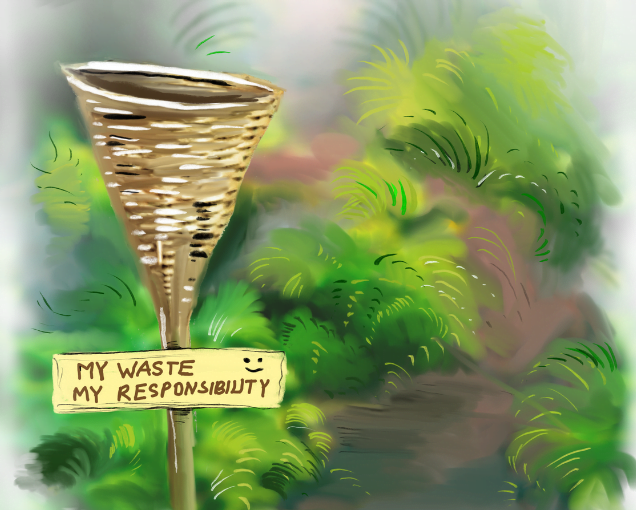
Amidst the struggle of India’s population to meet basic needs, the conspicuous consumerism and waste generation in urban areas sparked her interest in sustainability, aiming to harmonize human activities with the environment and promote societal well-being.
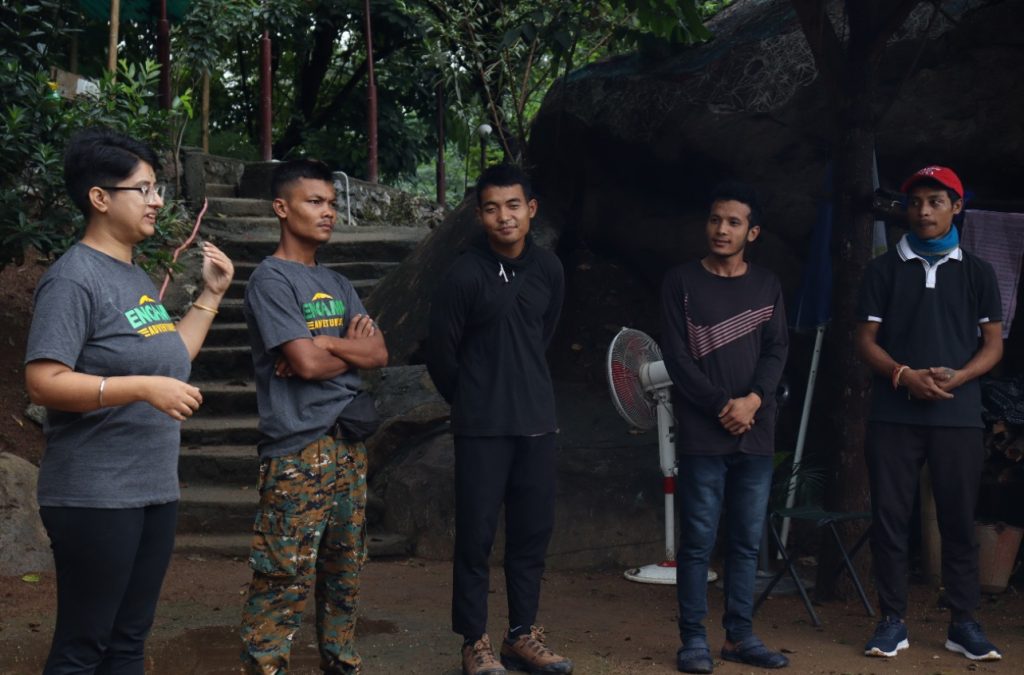
Journey of Learning and Unlearning
Kabita embarked on a journey of exploration, learning and unlearning to deepen her understanding on sustainable tourism. She visited experimental communities and learning spaces such as Auroville, Swaraj University, Center for Village Sciences, Aranya Permaculture Academy, Barefoot College, Vanvadi Forest, and Sadhana Forest . These experiences allowed her to engage with practitioners and co-learners, enriching her knowledge on Alternative Living, Sustainable Livelihoods, Permaculture, and Zero Waste Philosophy. A course on Circular Economy & Sustainability from the Centre for Research in Ecology and Sustainable Technologies further equipped her with essential skills and insights.
Kabita’s commitment to a conscious lifestyle translated into her personal choices. She adopted low-waste living, conducted individual daily waste audits, boycotting unfair brands, and began making her own daily-use products. She switched to reusable menstrual products, and prioritized minimal and local purchases. Her home became a chemical-free zone, with natural cleaners and home-grown food becoming the norm. These practices were not just personal preferences but a testament to her dedication to living harmoniously with nature, which translated into her work.
Towards the end of her college years, Kabita sought internship opportunities that aligned with her passion for sustainability. After college, she chose Sustainable Menstruation themes to work on as a Livelihoods Consultant in EcoFemme. She worked for two years (2018-2020) in EcoFemme a social enterprise based in Auroville, on a Central Government Project in Sikkim and Tripura. Her background in Social Work, coupled with a specialization in Social Entrepreneurship & Livelihoods from TISS, paved the way for her entrepreneurial journey in the sustainability sector. In 2018, Kabita, along with her sibling, cousin, and a few friends, started working in the sector of sustainable tourism through camping, which eventually got registered as Encamp Adventures Tourism Private Limited in 2019.
Sustainability Initiatives at Encamp Adventures
Pioneering Responsible Tourism
At Encamp Adventures, Kabita has implemented several initiatives that reflect her commitment to sustainability. She has established Zero Waste Campsites and developed a Sustainable and Responsible Travel Standard Operating Procedure (SOP) for their guests,named Encampers.
Under her leadership, Encamp Adventures has introduced various outdoor learning programs for school and college students, and slow and sustainable experiential trips, catering to individuals seeking offbeat and transformative experience.
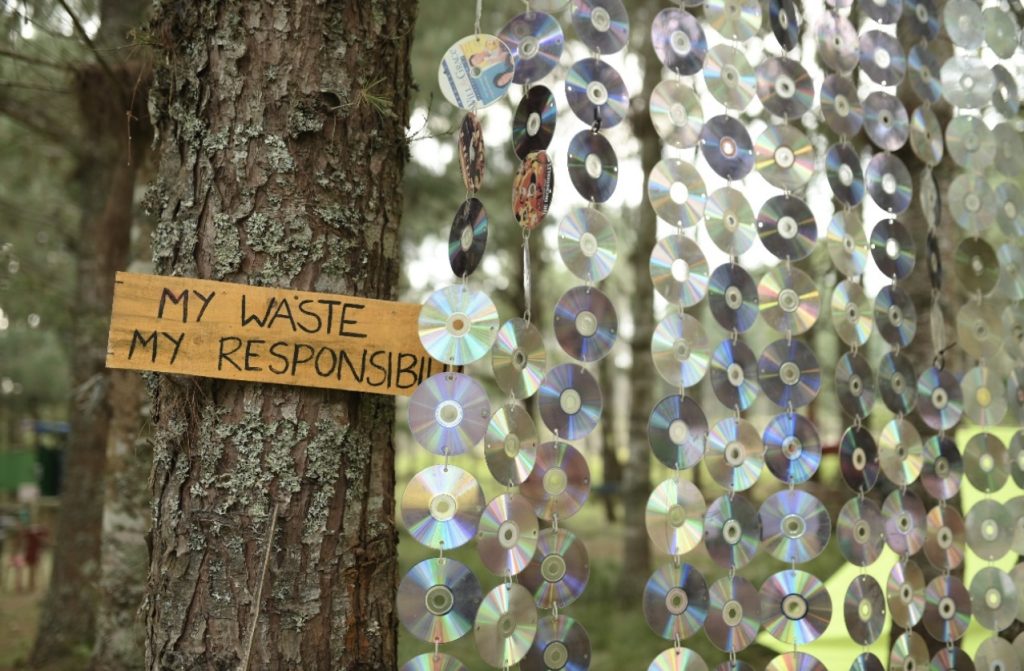
Moreover, Encamp Adventures has developed a carbon footprint calculator integrated into their website itineraries, which measures travellers’ footprints and motivates them to support grassroots conservation projects in their destinations. Encamp is involved in community-driven waste management projects in Arunachal and has created a nature-positive travel technology that calculates and displays a tourist’s carbon footprint. This system is aimed at promoting behaviour change by encouraging travelers to contribute to climate action funds and helps indigenous communities generate carbon credits through global carbon market exchanges.
Transformative Vision for Encamp Adventures
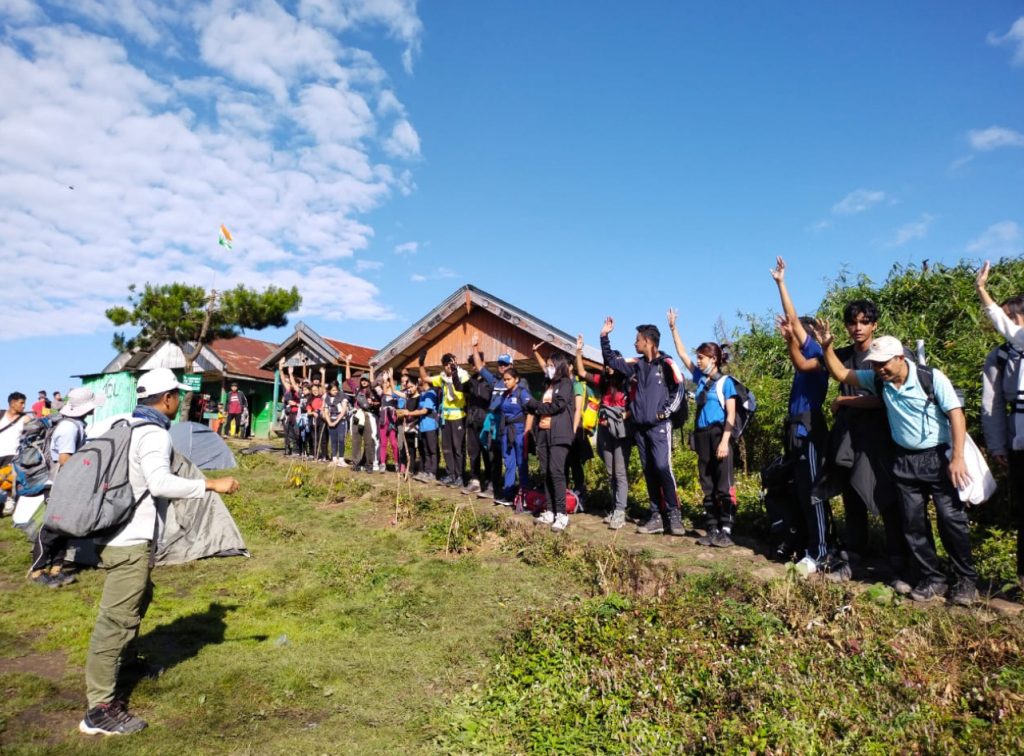
Kabita is currently focused on managing one of Encamp’s flagship properties, “Encamp Khanapara Hilltop Camp,” located near Guwahati. Her vision is to transform it from merely a camping site into a space for Regenerative Co-learning Retreats, where immersive experiences bring humans into closer relationship with the ecology. These retreats aim to ignite inner transformations that lead to a radical change in understanding global issues and problems, fostering responsible stewards of the planet. She hosts workshops focussed on local food systems, circular fashion, building earth connections, moon circles, healing forest hikes, and natural colour painting workshop, to name a few. Sheoffers this space for collaborative initiatives with her community members of environmentalists, social entrepreneurs, healers, artists, educators, dreamers, and visionaries.
Economical, Socio-Political Challenges
The major challenge when they have started up was managing funds. As first generation entrepreneurs with no business background, it was very difficult for them to manage investments or even gain financial support from their families and relatives. Overtime with the support and trust of their families, they bootstrapped for the first few years until they started receiving recognitions and awards, which brought some financial support from the startup ecosystem. Despite these achievements, they still struggle with financial management and sustaining their previously large team. We are currently managing with less staff, and more roles on each of our shoulders.
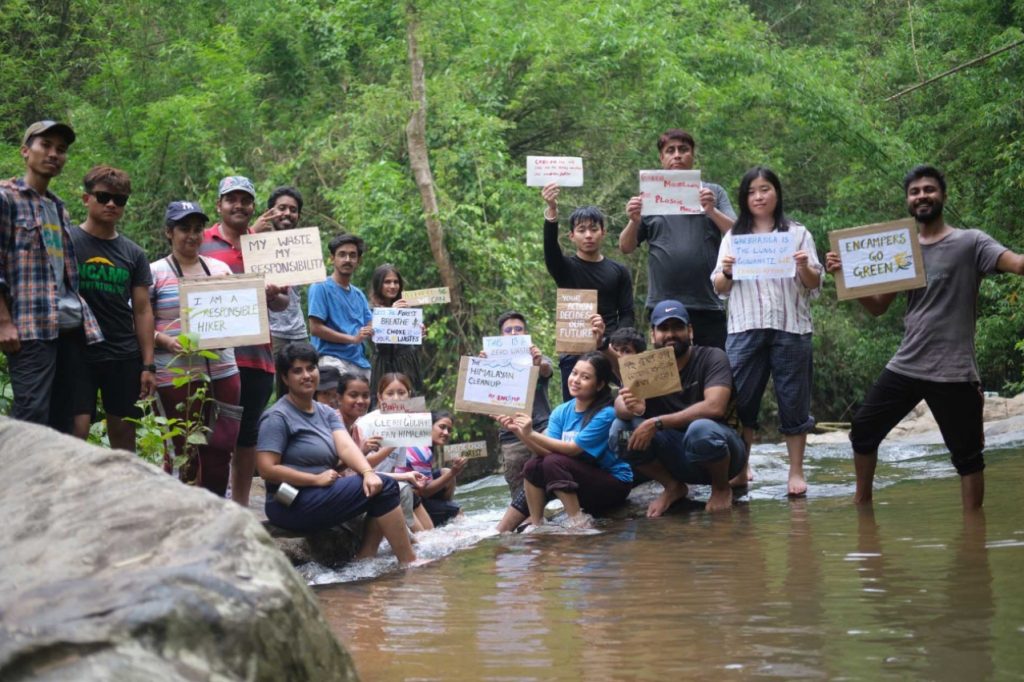
Another significant challenge is the high marketing cost required to promote tourism in the North-East Region and the low paying capacity of local tourists. Due to various socio-political factors and events, Indian tourists from other parts of the country remain apprehensive about travelling to the North East Region. Recently, they expanded to Nepal Tourism, which is performing comparatively better. Encamp has also invested significantly in building a tech product over the past years, which is still a work in progress. On a personal level, a constant challenge has been finding hard working team members with an entrepreneurial spirit who don’t give up and make things work on the ground. Having all the challenges, they continue to navigate through them, learning and growing from their experiences, because they know that entrepreneurship is never an easy game.
